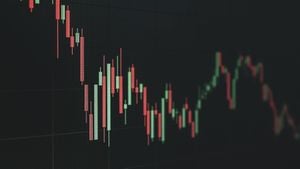The COP29 climate summit kicked off on November 11, 2024, in Baku, Azerbaijan, and the atmosphere was already charged with tension. Right from the start, the two-week conference was marked by complications arising from trade issues intertwined with climate promises, putting the focus on the impending economic and diplomatic stakes involved.
Before talks could even begin, the conference's agenda faced delays due to China's proposal to discuss climate-related trade barriers. These discussions were prompted by the European Union's recent introduction of the Carbon Border Adjustment Mechanism (CBAM), which imposes tariffs on imported goods based on their carbon footprint. The timing of these measures has come under scrutiny, considering the geopolitical climate following the election of Donald Trump, who is known for his skepticism toward international climate agreements.
Trump's election as the next U.S. President loomed over the proceedings, leading many to wonder how the shift would affect global commitments to climate action. John Podesta, senior advisor to the President on international climate policy, addressed these concerns, stating, "Are we facing new headwinds? Absolutely. But will we revert back to the energy system of the 1950s? No way... This is not the end of our fight for a cleaner, safer planet." His assurance aimed to reaffirm the United States’ commitment to climate action, even as uncertainties hung thick.
The BASIC group, comprising Brazil, South Africa, India, and China, criticized the unilateral trade measures from the EU and emphasized the need for multilateralism to tackle climate challenges. They argued against the EU's tariffs, claiming these could unfairly distort global markets and added to the financial burden of tackling climate action. The negotiations around carbon tariffs have exposed the growing fracture between developed and developing nations, with many developing countries hesitant to impose new barriers on trade.
Azerbaijan, hosting the summit, was eager to showcase its commitment to climate action as it balances its economic reliance on fossil fuels. President Mukhtar Babayev stated, "Azerbaijan can build the bridge, but you all need to walk across it. We need to start running." With oil revenues still playing a significant role, the country aimed to demonstrate its readiness to transition to renewable energy.
The country has projected ambitions to increase renewable energy contributions to its electricity supply from 20% to 35% by 2030. The president's remarks sought to highlight Azerbaijan as not only a supplier of fossil fuels but also as a future hub for green energy solutions.
While Azerbaijan's position exhibits its challenges, many countries gathered at COP29 are under immense pressure to deliver on climate finance claims. The objective is clear: develop countries are advocating for up to $1 trillion annually for climate finance, significantly more than previous commitments. This mounting task quickly competes against broader international issues, including conflicts and economic instability arising from wars such as those occurring in Ukraine and Gaza.
Adding layers of complexity, trade interactions have unfolded against the backdrop of Trump pledging up to 20% tariffs on foreign goods and 60% on Chinese imports during his campaign. This is particularly unsettling for developing nations, which have been vocal about needing equal footing and fair treatment when it involves climate initiatives.
While the world watches to see how the discussions evolve, the United States has also raised expectations for China, the largest emitter of greenhouse gases, to present more substantial actions. Podesta reiterated, "It is incumbent on them… to come forward with real reductions. They have an important role to play, and we hope they play." This statement underlined the EDexpecations for China as negotiations continue to shape this developing narrative.
With the backdrop of annual climate events potentially being overshadowed by trade worries, the COP29 summit embodies the continuing battle between climate ambitions and economic practices—facing hurdles influenced by politics and uncertain international relations. The discussions are likely to reflect on past sentiments of mistrust between nations but highlight the unmistakable need for cooperative action.
Simply put, the COP29 events serve as more than just meetings of government representatives—they're textured, mired with layers of geopolitical insinuation, economic strategy against climate emergency rhetoric. The world looks to Baku with hope, expecting meaningful commitments and genuine cooperation to surface amid the complex web of trade, economy, and climate negotiations. Observers, advocates, and climate action seekers can only hope for pathways to clarity and fairness as these fundamentally intertwined issues are navigated on the global stage.



